Our Team
Collaborating Institutions
In addition to our official partnerships with UN-Habitat, RMIT University, and IFRC, we regularly collaborate with more than 40 other organizations that provide our students with quality internships. Our students have completed internships in more than 113 institutions all around the world, forming a diverse network that our alumni benefit from.
OUR VISITING FACULTY’S OPINION OF THE MASTER PROGRAM:
“The master has improved consistently in recent years and recruits students that are committed and highly capable. Very impressed by both the administration, and students. A top program.”
Sergio PalleroniPortland State University
“I've served as a visiting faculty in this program for over a decade, and I've seen impressive progress in all aspects of it, from curriculum development, to administration and the quality of the students' work. It is an excellent program I feel very proud and honored to be a part of.”
Dr Clara Irazabal ZuritaUMKC, Director of the Latinx and Latin American Studies Program
“Having been involved in the master since its inception as a student, I have witnessed its evolution firsthand in all aspects; particularly under its current manangement, the master has never been better. The quality of students it attracts and their subsequent work output has increased annually during my time teaching here.”
Mbongeni NgulubeProfessor
“An excellent and unique course that is internationally recognized, and recently referenced at a presentation at Harvard University as exemplar of good teaching, organization and content.”
Nabeel HamdiProfessor Emeritus of Oxford Brookes University
Steering Committee
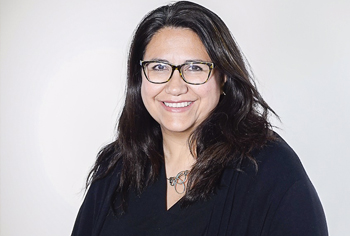
Carmen Mendoza Arroyo
Architect with a PhD in Urban Design and Planning. Associate Professor at UIC School of Architecture. Vice Dean of the School of Architecture at UIC Barcelona from 2013 to 2022. Founder and Director of the MICSEA since 2012. She combines teaching and research which delves into the understanding of how to respond to increasing stressors such as disasters, displacement, migration and spatial inequality in urban settings, through participatory socio-spatial methodologies. She has developed projects and published articles and books related to her research topics.

Allison Koornneef
Allison is from Toronto, Canada and has a background in Environmental Design from OCAD University. As a graduate of our 2012-13 class, her thesis analyzed participatory data gathering processes in informal settlements, and during her internship with SPARC in Mumbai, India, she contributed to a sanitation survey using GIS mapping. She is passionate about water and sanitation, mapping, and participatory action as sustainable development.
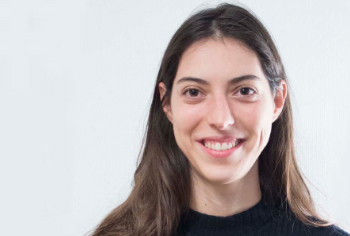
Georgina Surià
Having studies in Architecture and Performing Arts, Georgina is constantly looking for ways to complement her first area of study, Architecture, and the conceptualization and communication skills that Performing Arts has given her. Nevertheless, she continues her research separately in both areas. She has worked in social interdisciplinary projects as the installation Urban Nature by Rimini Protokoll collective and with Guillermo Santomà on the design of the exhibition After The End of The World both presented at CCCB Barcelona (Center for Contemporary Culture of Barcelona).
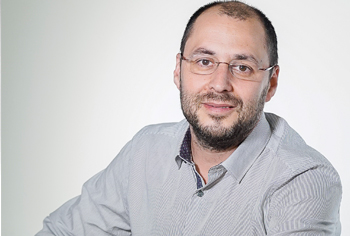
Emilio Hormias
Founding member of the Master Program. Associate Professor at EPSEB-UPC. Coordinator of the NGO University without Borders – USF. Emilio implements social and educational facilities and planning projects in developing countries and his research is focused on building restoration and low cost materials. He is also co-funder of the firm Bestraten Hormias Arquitectura SLP, in Barcelona.
Core Staff
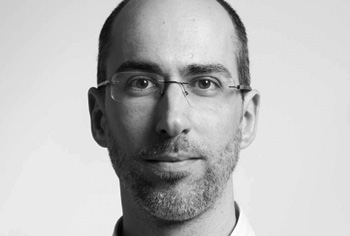
Lorenzo Chelleri
PhD in Urban Geography. He is currently a Postodctoral Research Fellow at the Gran Sasso Science Institute (GSSI Cities), and founder member and coordinator of the Urban Resilience Research Network. He has worked for the European Environment Agency, and has been involved in different European and international projects on climate resilience and urban sustainability. His main research interest is around the social implications of urban transitions.
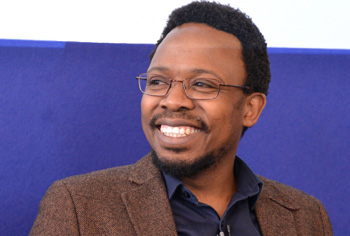
Mbongeni Ngulube
Architect and Urban Designer. Worked in South Africa and founder of MNA architects, Johannesburg. Master in International Cooperation in Urban Development (TUD, Germany) and in Housing, Urbanisation and Sustainability in Developing Contexts (UIC, Spain). Currently a Doctoral researcher in the Anthropology of Development and Urbanism at the Institute for Anthropological Research in Africa (Katholieke Universiteit Leuven, Belgium), his research focuses on the impact of diaspora and social movements on development.
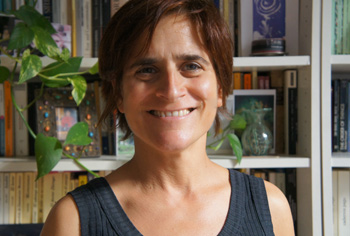
Apen Ruiz
PhD in Anthropology. Her PhD research examined the relations among anthropology and gender in Mexico. She has written various articles and a book on this topic. Her current research interests lie in the interactions between heritage and communities with a focus on how gender needs to be introduced in every phase of research, and the investigation of sexual violence and protocols to detect violence in research institutions. She is a member of Simref, a group of scholars interested in feminist qualitative methodologies, and has been advisor for students working with issues of gender and development, heritage and memory and the politics of development.
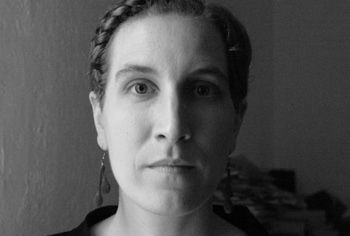
Kathrin Golda-Pongratz
Architect, urban researcher and curator. PhD in Urban Planning from Karlsruhe Institute of Technology (KIT). Author of numerous publications, among them co-author of the book „John F.C. Turner. Autoconstrucción. Por una autonomia del habitar“ (FAD Award in Thought and Criticism 2019). Member of the Academia Europaea and of the Institut dels Passats Presents of Barcelona’s city council. Her research focuses on urbanization processes and migration, Latin American urbanism, housing policies, structural change of urban societies, postcolonial urbanization, non-formal urbanism and place-making strategies, public space and urban memory.
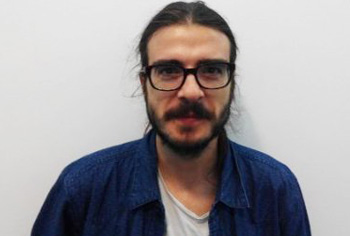
Hug March
PhD in Environmental Sciences from the Universitat Autònoma de Barcelona (UAB), 2010. Hug is a research fellow at the Internet Interdisciplinary Institute (IN3), Universitat Oberta de Catalunya. His research is focused on the political ecology and economy of urbanization and has contributed to debates around urban water infrastructure and water provision. He has contributed to over 20 publications to journals in the fields of Geography, Environmental Studies/Sciences, Urban Studies and Economics, among other disciplines.
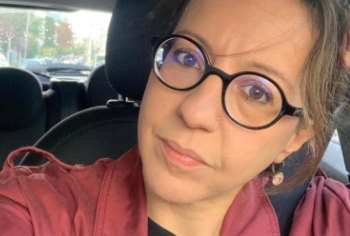
Elia Apostopoulou
PhD, Aristotle University of Thessaloniki, 2009. Elia Apostopoulou has held postdoctoral and lectureship positions in the Universities of Cambridge and Oxford and from 2019 to 2022 she has been a Senior Research Fellow in the Cambridge Institute for Sustainability Leadership. Since 2020 she is an editor of Dialogues in Human Geography and in August 2021, she was awarded a 5-year Ramon y Cajal Senior Research Fellowship after ranking 1st in social sciences across Spain. Currently, she is based at ICTA-UAB where she leads the research line Planetary Urban Infrastructures in the Barcelona Lab for Urban Environmental Justice and Sustainability.
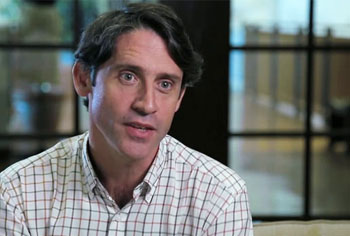
Gonzalo Sánchez-Terán
Gonzalo has worked for the last eleven years organizing, managing and implementing emergency projects in refugee and IDP camps in Guinea Conakry, Liberia, Côte d’Ivoire, Chad and Ethiopia. He is also a regular tutor and lecturer for the International Diploma on Humanitarian Assistance at Fordham University, New York, and for the Humanitarian Cooperation Masters at Comillas University, Madrid. He has published extensively on African Geopolitics and Humanitarian Assistance through articles and books.

Verónica Sánchez Carrera
PhD. Architect, Independent professional in urban planning and architecture since 2004. She is an expert in emergency architecture for infectious diseases, she has specialized in WASH and in Development of Human Settlements. She is a member of the Infectious Diseases team of the World Health Organization. In 2007 she focused her activity on Humanitarian Aid, where she has worked in different organizations and countries. Her practice includes urban and territorial consultancies, evaluations and technical support in humanitarian programs. Throughout the last eighteen years she has combined her professional activity with teaching and research.

Ashley Howard
Project manager with a Master of Disaster, Design and Development from RMIT University Melbourne. Ashley has a diverse knowledge background with technical skills in process engineering and leading complex design-build projects, alongside being an experienced researcher and international development practitioner, specialising in intercultural practices and educational fieldwork methodologies. Ashley is a Marie Skłodowska-Curie Fellow, who is developing a joint PhD between UIC and RMIT under the RMIT European Doctoral Innovators (REDI) Program. His research evaluates the social impact of environmentally-centred shelter and settlement design-build strategies in complex humanitarian emergencies.
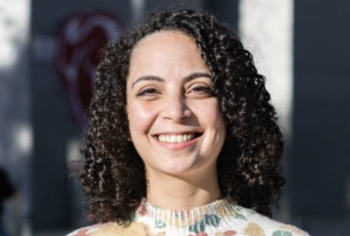
Sara Eltokhy
Sara is an urban planner and researcher with a master's degree in urban planning and policy Design from Politecnico di Milano in Italy. She is currently a Marie Skłodowska-Curie PhD Fellow at UIC Barcelona and RMIT University in Australia as part of the EU-funded project RMIT European Doctoral Innovators (REDI). Her research interests focus on the challenges and complexities of forced migration from an urban perspective, with a particular emphasis on gender and everyday life.
Visiting Professors & Collaborators 2023-24
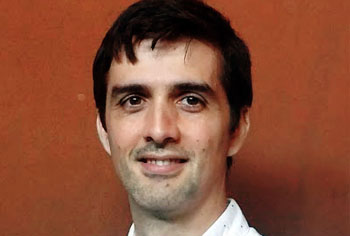
Alejandro de Castro
Architect with a Master of Science in Advanced Architectural Design from Columbia University in New York and a PhD in Architecture, he coordinated GSAPP’s Latin Lab from 2010 to 2016 and has taught at Harvard University, the Pratt Institute and the Technical University Darmstadt, among others. Alejandro's work explores the rhetorical dimension of planning and architecture in marginalized communities to propose spatial practices that are sensitive to both form and policy.
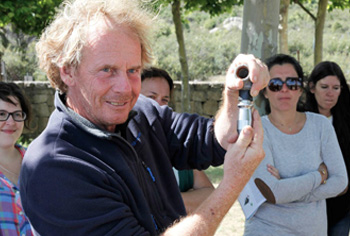
Andreas Schiffer
Andreas has over 25 years experience in humanitarian responses to disasters and conflicts. He has worked with NGOs such as MSF, Acción contra el Hambre and Intermon Oxfam as a logistician, coordinator, WASH expert, consultant, trainer and researcher in numerous countries around the world. Since 2006 he works as a freelance consultant and trainer, organizing courses in humanitarian logistics and WASH with his enterprise FLASH, dedicated to strengthening the impact of humanitarian actors through practical, technical and bespoke training for NGO staff and other professionals looking to improve their impact in the humanitarian field.
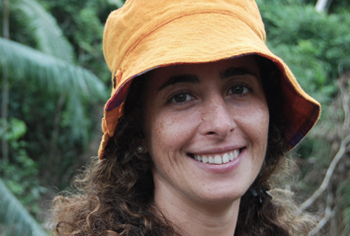
Marta Peña
Architect, specialized in construction by ETSAM. She has worked as an architect for seven years in Spain before working in international cooperation with the Red Cross in 2005. Since then she has coordinated emergency shelter response and post-disaster reconstruction programs in Sri Lanka, Peru, Senegal, Haiti and the Philippines. She is currently based in Geneva, Switzerland, working with the International Federation of the Red Cross and Red Crescent Societies (IFRC) in the Shelter & Settlement department as the focal point for training and support operations.
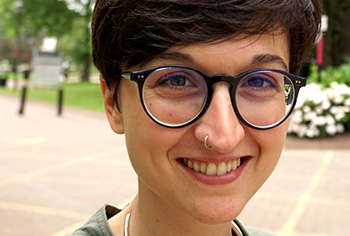
Gaja Maestri
Political Sociologist and Human Geographer, PhD at Durham University (UK). Lecturer in Sociology and Policy, Aston University (Birmingham, UK). Her work addresses questions of migration and civil society organisations, with a specific attention to the urban dimension. Her recent research has focused on solidarity towards refugees in Europe and on housing access of migrants and Roma groups, with a particular interest in how political initiatives and mobilisations intersect with the making of spatial inclusion and exclusion. She has been involved with NGOs and think tanks working on racist discrimination and gender.
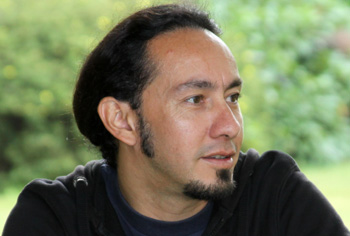
Paul Cabrera
Architect. Master in Architecture, Urban Planning and Technologies for Developing Countries (Politecnico di Torino). Building Design and Engineering Approaches to Infection Control Course (Harvard School of Public Health). He worked an architect and urban planner in the Balkan region after the war, supported MSF’s medical projects in the Democratic Republic of Congo, Ethiopia, Pakistan and Liberia and is currently a technical referent for Construction and Sheltering at the MSF Spain Headquarters. He participates actively in the emergency phase and strategic planning of reconstruction of emergencies such as the January 2010 earthquake in Haiti.
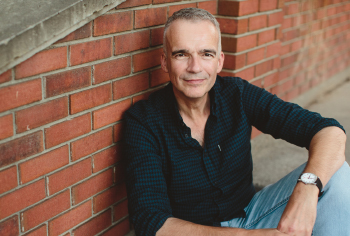
David Sanderson
Emergency housing support for disadvantaged communities displaced by natural disasters, geo-political conflicts, socio-economic exclusion and environmental factors. David is the Inaugural Judith Neilson Chair in Architecture and has 30 years' experience working across the world in development and emergencies. From 1994-98 David was a Project Manager at the Oxford Centre for Disaster Studies. David worked for eight years for the NGO CARE International UK, as head of policy and subsequently Regional Manager for southern and west Africa. From 2006-2013 David was Director of CENDEP, a centre at Oxford Brookes University focusing on development and emergencies.
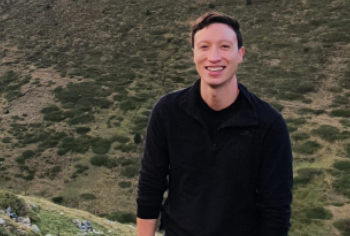
Julian Tung
Currently working in CARE International and serving as Technical Advisor for the NW Syria Shelter Cluster. Julian Tung has more than 10 years of experience leading and advising humanitarian responses in the Middle East, Europe, Caribbean, Africa and South Pacific Islands. Julian has a Masters Degree in Civil, Structural and Environmental Engineering. He currently provides technical support to humanitarian actors in NW Syria related to Settlements and Dignified Shelters. He promotes participatory approaches for establishing dignified and safer living conditions in camps for displaced persons that adapt to the complex inter-sectoral challenges of protracted displacement. He is experienced in facilitating technical working groups to develop standards and guidance documents and provides training and coaching to local actors.
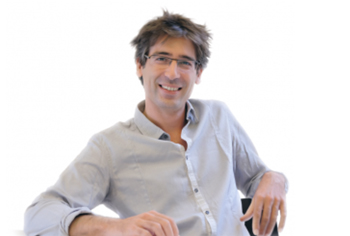
Mattia Leone
Architect and PhD in Building Technology and Environmental Design, Mattia Leone is Assistant Professor in Architectural Technology at the Department of Architecture (DiARC) and Senior Researcher at PLINIVS-LUPT Study Centre at the University of Naples Federico II (UNINA). His main research activities concern sustainable design and technological retrofitting of buildings and public spaces, with particular reference to environmental design and building technologies for Disaster Risk Reduction and Climate Change Adaptation. As a member of UCCRN - Urban Climate Change Research Network, he is in the Coordination Board of the UCCRN European Hub and Scientific Responsible of the Climate Resilient Urban Design Workshop series, exploring multi-scale sustainable and resilient urban design strategies through advanced applications of GIS and parametric design tools.
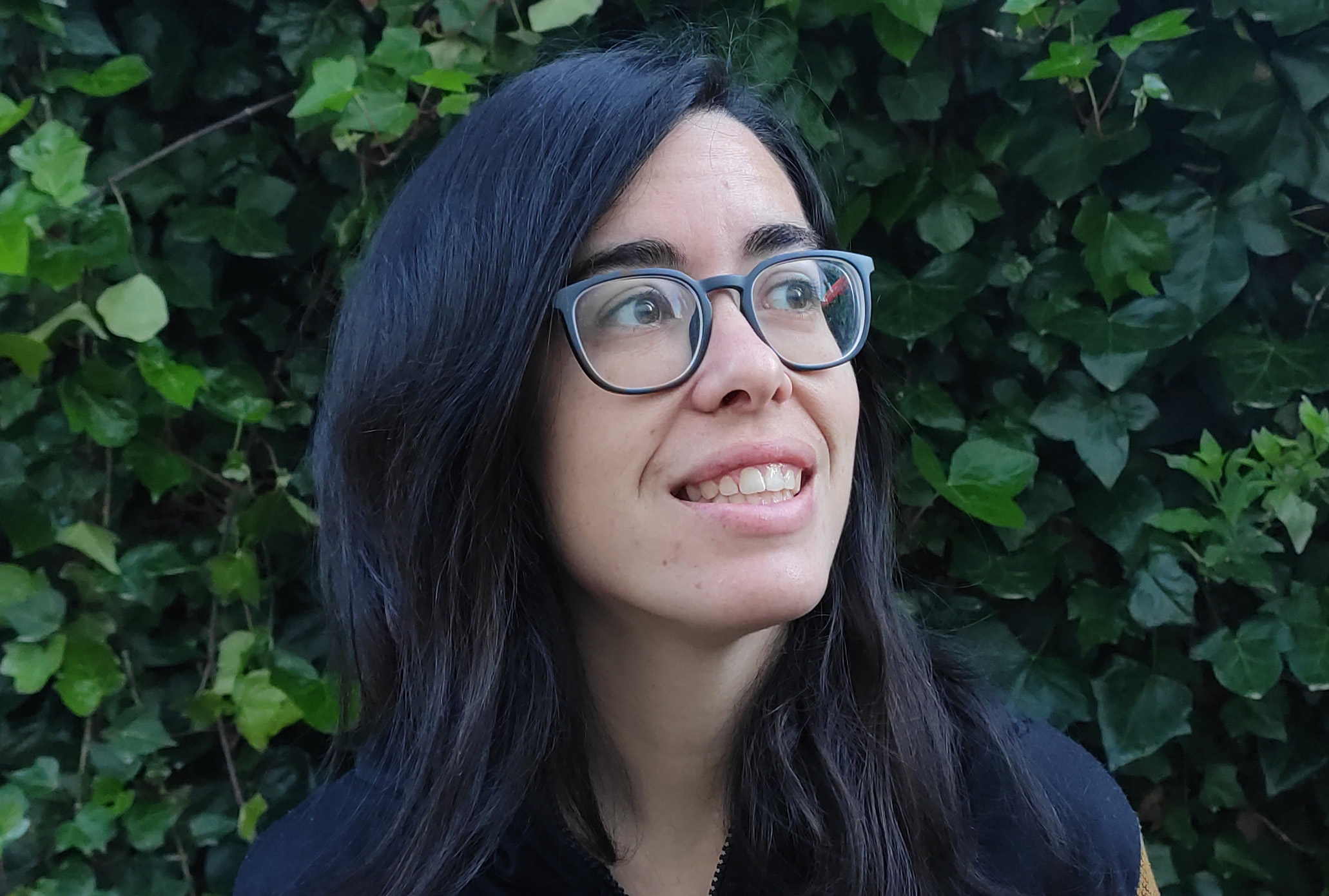
Mar Satorras
PhD in Environmental Sciences and Technology from the Universitat Autònoma de Barcelona (UAB), 2017. She is an anthropologist and environmental scientist holding a MSc in climate change and is currently based at the Metropolis Institute, a public urban research center located at UAB which aims to support and inform policies and action to promote urban transformation, equity, and sustainability. Mar’s research focuses on urban sustainability challenges approached under socio-political lenses, with extensive experience on the water cycle and the climate emergency. Her interdisciplinary research at the interface between environmental and social sciences combines ethnographic, historical, and geographical perspectives.
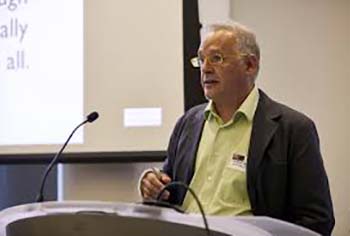
Sergio Palleroni
Architect. MSArchS in History Theory & Criticism from the MIT. Co-founder of BaSiC Initiative, he has worked on housing and community development in the developing world since the 1970’s, both for not-for-profit, governmental, and international development and relief agencies such as the United Nations and the World Bank, and the governments of Chile, Colombia, Mexico, Nicaragua, India and Taiwan. He is Professor and Fellow of the new Center for Sustainable Processes and Practices at Portland State University and has received numerous awards, including the prestigious AIA Latrobe Prize in 2011.
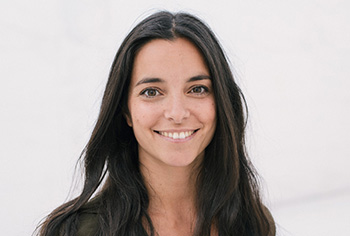
Nerea Amorós Elorduy
M.Arch, PhD (UCL). Alumni of our masters program. Nerea is an architect and researcher with experience in refugee assistance, education, and health projects with emphasis on community participation in East Africa and in post-conflict environments. She contributed to create the School of Architecture at the University of Rwanda and co-founded ASA Studio based in Kigali. Her PhD research focused on mapping the built environment elements that affect young children’s learning living in long-term refugee camps in Southwest Uganda, Rwanda, and Northwest Kenya. She is the founder of the interdisciplinary studio Creative Assemblages in Kampala, Uganda.
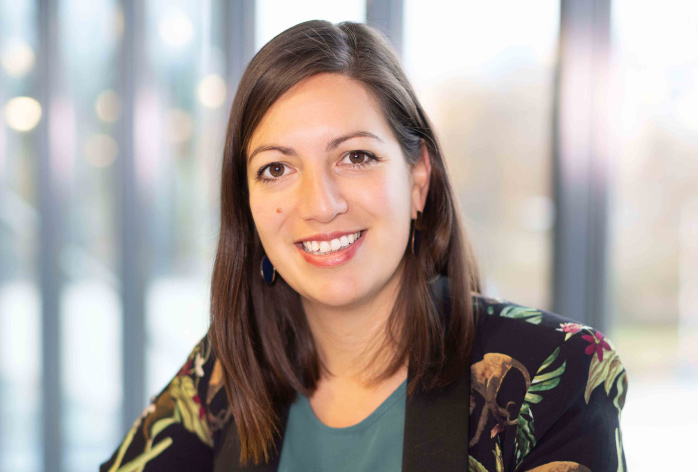
Eefje Hendriks
Assistant professor in Disaster Resilience and Humanitarian Assistance at the University of Twente in the Netherlands. Eefje has a master’s in Architecture and in Building Technology, and a PhD in Post-disaster Reconstruction at the TU Eindhoven. She aims to scale up humanitarian and governmental recovery assistance by understanding the wider impact of aid interactions on affected communities. Therefore, she studies behavior of disaster affected populations in relation to safety and resilience of the built environment, especially in the global south. She has a work and publication record in the field of circular and modular shelter design, disaster risk reduction, disaster resilience, humanitarian assistance, self-recovery, and decision-making, migration in Europe, and adaptation to climate change of the built environment for more than 10 years.
Previous Years: Visiting Professors & Collaborators
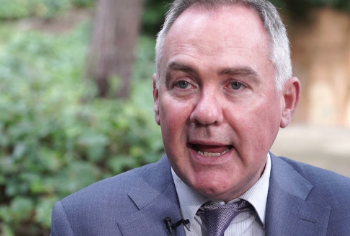
Brett Moore
Chief of Shelter and Settlement Section of the United Nations High Commissioner for Refugees, where he coordinates humanitarian shelter actors in both preparedness actions and disaster response. Prior to joining UNHCR, he was humanitarian shelter, infrastructure and reconstruction advisor with World Vision International, deploying to conflict and disaster zones around the world. He led teams to ensure a coordinated humanitarian response for significant global emergencies, and guided rebuilding efforts for disaster and conflict-affected communities ranging from refugee camps to urban slums.

Farzana Gandhi
Her architecture and planning practice, Farzana Gandhi Design Studio, focuses on sustainable and socially conscious solutions, both locally and abroad. Recent work includes a primary school in Senegal, Africa; community visioning and streetscape design in East Harlem, NY; resiliency strategies and NYCHA campus connectivity in Inwood, NY; digital tools and applications aimed at effective community engagement; and replicable, modular infrastructure for Puerto Rico. Farzana is most interested in how widespread social impact can be achieved at the intersection of architecture and its environmental, cultural, and socioeconomic framework. Her deep commitment to community outreach is driven by deep inquiry, investigation, and integration.
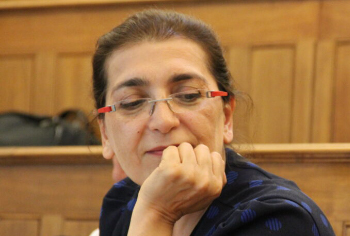
Farnaz Arefian
Farnaz is an experienced interdisciplinary expert in disaster management and reconstruction, urban design and planning, and architecture. Her professional life combines extensive experience in academic research and education with practice-based experience, knowledge exchange and engagement in the Middle East, UK, and Southeast Asia. Farnaz is adept at bridging the gap between academia and practice and working with various stakeholders. She has a background in founding award winning consultancy company and delivering key urban development plans and architectural projects, including post-earthquake projects such as participatory housing reconstruction and post-disaster urban design projects in Bam, a historic city along the Silk Roads.
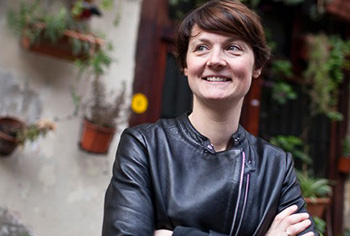
Isabelle Anguelovski
Social scientist. PhD, Massachusetts Institute of Technology. Her research is situated at the intersection of environmental policy and planning, social inequality, and development studies. Her recent research has examined environmental mobilization and revitalization in low-income and minority neighborhoods in the Global North and South. She has worked for international development organizations and consults for NGOs on indigenous peoples’ rights, urban and environmental planning, gender policy, and urban climate mitigation and adaptation programs.
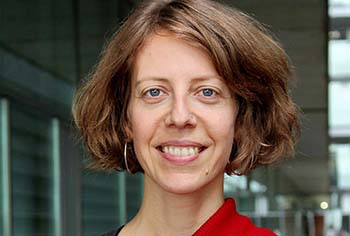
Melissa García Lamarca
Melissa holds a PhD in Geography from the University of Manchester, an MSc in Building and Urban Design in Development from University College London, a Graduate Diploma in Community Economic Development from Concordia University and a BA in Geography and Economics from McGill University. She is explores the structures and channels through which political economic processes generate urban inequalities, as well as how collective urban struggles can disrupt the inegalitarian status quo and open up new alternatives.
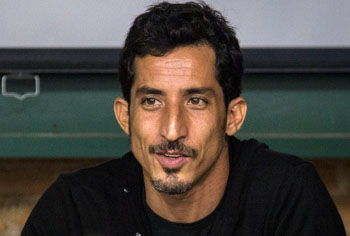
Alejandro Haiek
Architect, Universidad Central de Venezuela. Co-Founder and Director of LAB.PRO.FAB (Laboratory of Design and Fabrication), a cross-disciplinary practice focused on the renewal and resuscitation of inactive landscapes and degraded social contexts with a strong focus on reuse, recycling and the application of local intelligence. He is a professor and member of the academic committee of design at the Faculty of Architecture and Urbanism at Universidad Central de Venezuela, won the The International Award for Public Art in 2013 for the ongoing project Tiuna El Fuerte Cultural Park, and has published research papers in Argentina, Chile, Brazil and Peru.
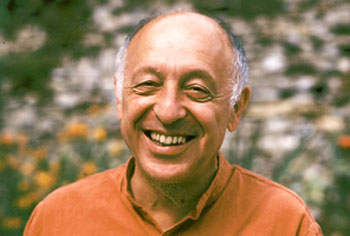
Nabeel Hamdi
Architect. He is Professor Emeritus of Housing and Urban Development at Oxford Brookes University, where he set up the highly successful Masters in Development Practice in 1992. He is a teaching fellow at The Development Planning Unit, University College London, has been an Arup Fellow at the University of Cape Town and is adjunct professor at the National University of Technology, Trondhiem, Norway. An advocate of small-scale change at grass-roots level, Nabeel has consulted on participatory action planning and upgrading of slums in cities to all major international development agencies, and to NGOs worldwide. He is the author of several landmark publications, including Small Change and Housing without Houses.
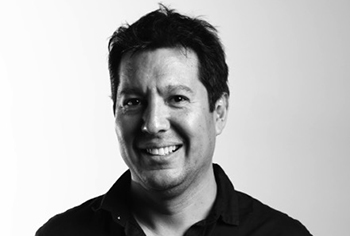
Esteban Leon
Chief Technical Advisor of the City Resilience Profiling Programme of UN-Habitat. He has a background in economics, finance, shelter/housing and settlements program design and management, capacity building, as well as building construction and reconstruction projects in post-crisis situations and urban resilience building. He has worked in the private sector (banking, microcredit and microfinance projects in Argentina and Bolivia), NGOs (slum upgrading, building constructions and reconstruction programmes in Bolivia and Kenya) and has been working for UN-Habitat since 2002 globally but based in Nairobi, Geneva, Panama and Barcelona.
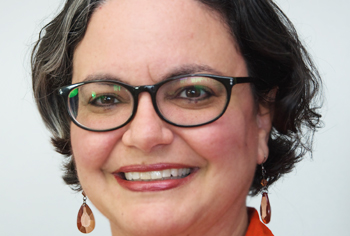
Clara Irazabal
Architect. Master in Architecture and Urban Design and Planning. PhD in Architecture. Former head of GSAPP's Latin Lab, she is directs the Latina/o Studies Program and is Professor of Planning in the Department of Architecture, Urban Planning + Design at the University of Missouri, Kansas City. She has worked as consultant, researcher, and professor in South America, Europe, Asia and the US. She explores social justice struggles manifested in processes of transformation of urban space and how markers of minoritized identity and their intersections with one another are negatively impacted by planning processes, when the supposed mandates of planning urge respect, celebration, and nurturing of diversity.
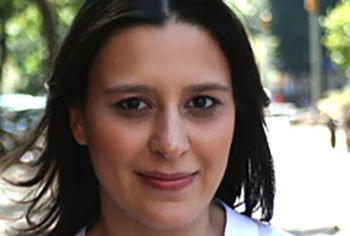
Ebru Gencer
Ph.D (2007) and MPhil from the Urban Planning Program at Columbia University. Founding Executive Director of the Center for Urban Disaster Risk Reduction and Resilience (CUDRR+R), a non-profit research center based in New York City. She is also an Adjunct Associate Professor of Architecture, Planning and Preservation at Columbia University; Co-Chair of the Urban Planning Advisory Group (UPAG) to the UN Secretary General’s Special Representative on Disaster Risk Reduction; and a member of the Steering Committees of the Making Cities Resilient Campaign and the Global Alliance for Urban Crises.

Gaja Maestri
Political Sociologist and Human Geographer, PhD at Durham University (UK). Lecturer in Sociology and Policy, Aston University (Birmingham, UK). Her work addresses questions of migration and civil society organisations, with a specific attention to the urban dimension. Her recent research has focused on solidarity towards refugees in Europe and on housing access of migrants and Roma groups, with a particular interest in how political initiatives and mobilisations intersect with the making of spatial inclusion and exclusion. She has been involved with NGOs and think tanks working on racist discrimination and gender.
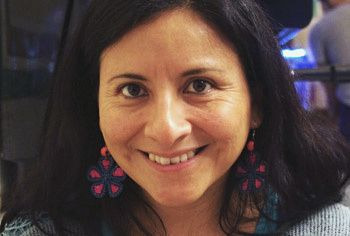
Rossana Poblet
As an urban-environmental specialist with over 20 years of experience, Rosanna has been actively involved with informal urban transformation processes in contested and post-conflict regions in the Americas, Africa and Europe. As an architect and urban planner, Rossana has joined applied-research projects integrating socio-cultural-political aspects with environmental concepts like ecological infrastructure, nature-based solutions and water sensitive urban design. Her expertise focus on co-designing socio-environmental strategies to revert environmental injustices in the so-called global South. She is a visiting lecturer in different global universities, a CIM-GIZ expert and lives between Berlin and Lima.
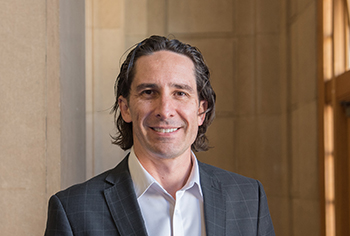
Gonzalo Lizarralde
Specialist in planning, management and evaluation of international architecture projects. He is the holder of the Chair Fayolle-Magil Construction in architecture, construction and sustainability and also the director of the IF Research Group (grif) at the Université de Montréal, which studies the processes related to the planning and development of construction projects. He is the leader of the Disaster Resilience and Sustainable Reconstruction Research Alliance, a scientific research program funded by the Quebec research funds (FQRSC) and a founding member of i-Rec, an international network for improving post-disaster reconstruction.
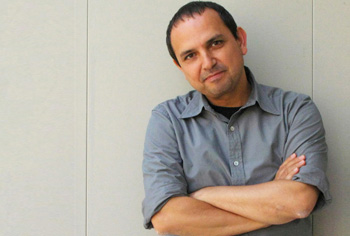
Teddy Cruz
Originally from Guatemala Teddy Cruz a Professor of Public Culture and Urbanization in the Department of Visual Arts at the University of California, San Diego. He is known internationally for his urban research on the Tijuana/San Diego border, advancing border neighborhoods as sites of cultural production from which to rethink urban policy, affordable housing, and public space. Recipient of the Rome Prize in Architecture in 1991, his honors include representing the US in the 2008 Venice Architecture Biennale, the Ford Foundation Visionaries Award in 2011, and the 2013 Architecture Award from the US Academy of Arts and Letters.
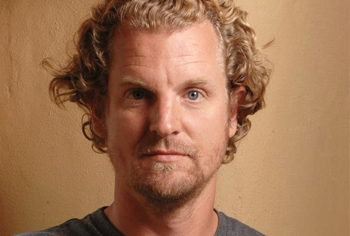
Nathaniel Corum
Architect with degrees from Stanford and the University of Texas at Austin, Nathaniel is the recipient of a Fulbright Scholarship and a Rose Architectural Fellowship. Previously the Head of Education Outreach at Architecture for Humanity and a Senior ECPA Fellow under the auspices of the U.S. Department of State, he is Design Director at SNCC and collaborates with international teams and tribal communities on planning and design/build projects. Author of Building a Straw Bale House, his work has featured in Architect Magazine, Humanitarian Architecture, and The New York Times.
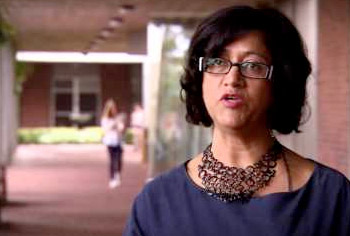
Reena Tiwari
Architect. Masters in Urban Design. PhD in Urban Studies. Reena is Associate Professor in the Departments of Urban & Regional Planning and Architecture at Curtin University of Technology Perth, Australia. Her expertise is in Urban Design and Urban Theory and has a global perspective and wide ranging experience on city growth and development. Reena received Australian National Award for her outstanding contribution to student learning for developing a cross-disciplinary and integrative approach to teaching urban theory and design, blurring boundaries between class room and the ‘real world’ experience.
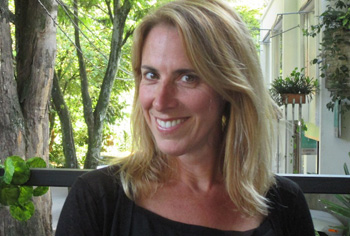
Fonna Forman
Fonna Forman is a Professor of Political Theory and Founding Director of the Center on Global Justice at the University of California, San Diego. A theorist of ethics and public culture, her work focuses on human rights at the urban scale, climate justice in cities, and equitable urban development in the global south. She serves as Vice-Chair of the University of California Climate Solutions Group, and on the Global Citizenship Commission (advising UN policy on human rights).
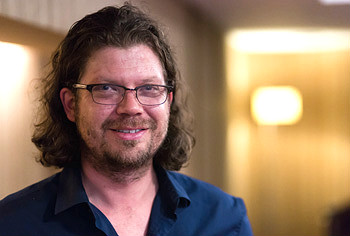
Eric Cesal
Eric is a designer, writer and post-disaster expert, having led on-the-ground reconstruction programs after the Haiti earthquake, the Great East Japan Tsunami, and Superstorm Sandy. He has been called “Architecture’s First Responder” by The Daily Beast for his work leading Architecture for Humanity’s post-disaster programs from 2010 to 2014, and is currently working on his second book about how foreign and economic policies of the developed nations aggravate the conditions that lead to catastrophic disasters. He currently works as the Special Projects Director for the Curry Stone Design Prize and co-hosts Social Design Insights, a weekly podcast with the leading voices of the social design movement.
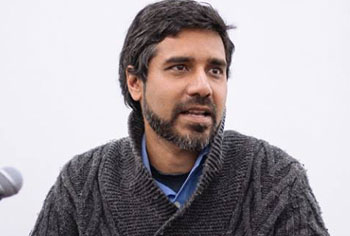
Aditya Kumar
Aditya has a master degree in Architecture MR+D (Metropolitan Research and Design) from the Southern California Institute of Architecture, in Los Angeles. He work focuses on supporting communities living in poverty stricken slums in Southern and Eastern Africa, with a strong focus on South African slums, townships, housing and backyard communities. He has an outstanding work which comprises among others the reconstruction of Nahr El Bared Palestinian refugee camp, and is Head of the Design and Planning Unit of the United Nations Relief and Works Agency in Tripoli, Lebanon.
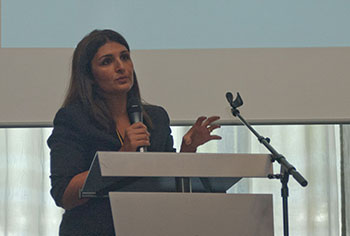
Torange Khonsari
Co-Founder and Director of the art and architecture practice Public Works, an inter- disciplinary practice working on the threshold of participatory and performative art, architecture, anthropology and politics. Her projects directly impact public space, working with local organisations, communities, government bodies and stakeholders. She is course leader of the Design for Cultural Commons Masters at The Cass (London Metropolitan University). She has taught at international universities such as UMA school of architecture in Sweden, unit leader at Royal College of Art - London as well as a visiting professor at Barbican and Guildhall school of Music and Drama.
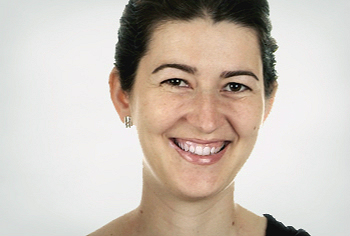
Sandra Bestraten
Founding member of the Master Program. Assistant professor at UIC School of Architecture and at ETSAB-UPC. President of University without Borders (USF), where she develops urban planning and social and educational facilities with social participation. Co-founder of Bestraten Hormias Arquitectura, which specializes in sustainable projects using ecological materials such as timber and rammed earth. Her research is focused on housing and cooperation in developing countries.
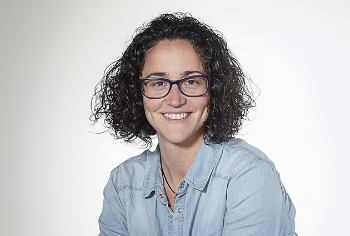
Marta Benages
PhD in Architecture, UIC Barcelona (2015). Assistant professor at the School of Architecture UIC Barcelona. Marta's research focuses on qualitative methodologies and access to communities' experiential knowledge, working within urbanism, landscape planning and environmental psychology. In this field, she studies the process of appropriation of open spaces in metropolitan areas in order to recognize people-place bonds and citizen engagement to landscapes of collective identity.
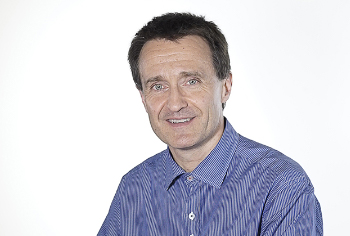
Pere Vall
Architect. PhD in Urban Design and Planning. Associate Professor at UIC School of Architecture. His research is focused on cultural landscapes and regional development. He is co founder of the Llobregat Colonies’ River Park, an initiative of territorial revaluation based on cultural heritage, which has received several awards. In this field, he has developed projects and plans and he has also published several papers. He is currently working on the study of the sprawl repair through heritage networks.

Marta Peña
Architect, specialized in construction by ETSAM. She has worked as an architect for seven years in Spain before working in international cooperation with the Red Cross in 2005. Since then she has coordinated emergency shelter response and post-disaster reconstruction programs in Sri Lanka, Peru, Senegal, Haiti and the Philippines. She is currently based in Geneva, Switzerland, working with the International Federation of the Red Cross and Red Crescent Societies (IFRC) in the Shelter & Settlement department as the focal point for training and support operations.

Mattia Leone
Architect and PhD in Building Technology and Environmental Design, Mattia Leone is Assistant Professor in Architectural Technology at the Department of Architecture (DiARC) and Senior Researcher at PLINIVS-LUPT Study Centre at the University of Naples Federico II (UNINA). His main research activities concern sustainable design and technological retrofitting of buildings and public spaces, with particular reference to environmental design and building technologies for Disaster Risk Reduction and Climate Change Adaptation. As a member of UCCRN - Urban Climate Change Research Network, he is in the Coordination Board of the UCCRN European Hub and Scientific Responsible of the Climate Resilient Urban Design Workshop series, exploring multi-scale sustainable and resilient urban design strategies through advanced applications of GIS and parametric design tools.
